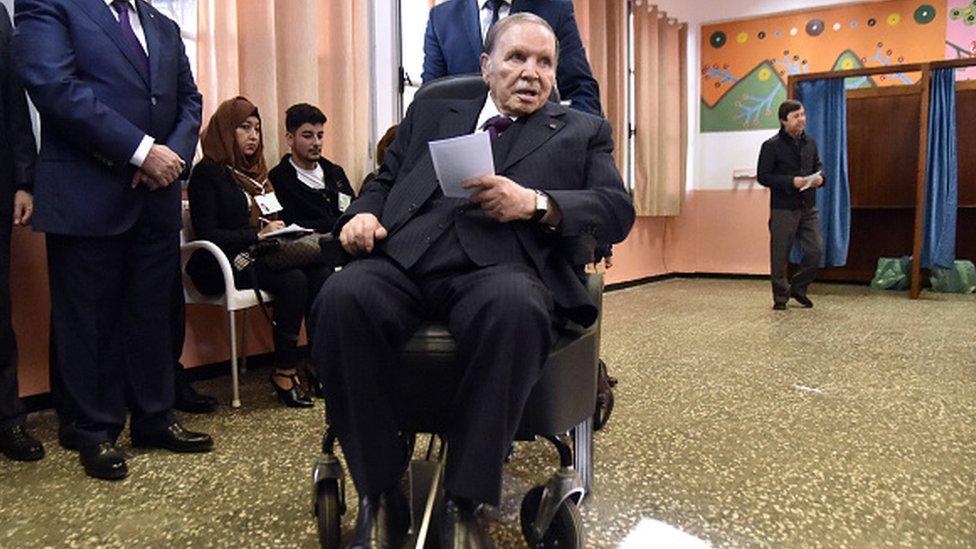Algeria protesters demand end to regime after Bouteflika's fall
- Published
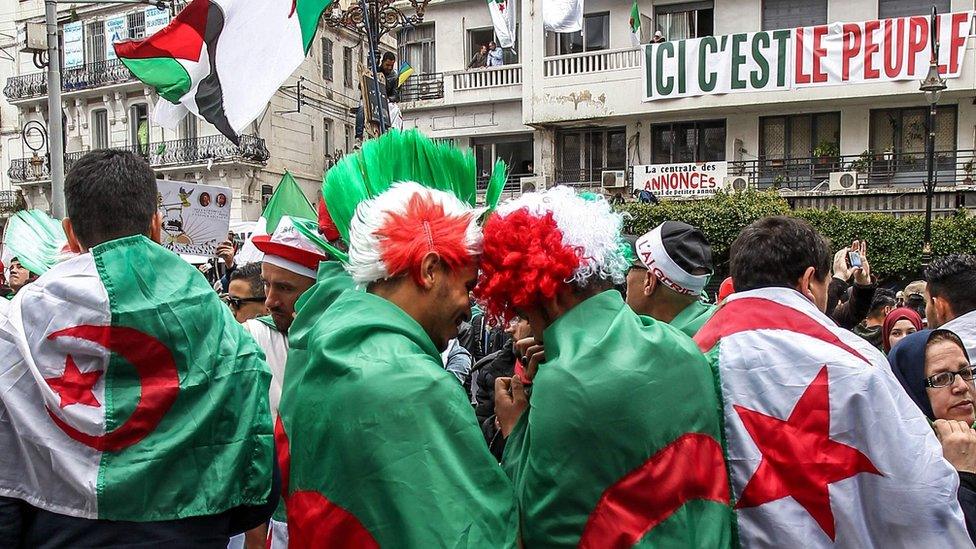
Protesters have taken to the streets for the seventh successive Friday
Thousands have taken to the streets of the Algerian capital demanding a complete overhaul of the country's political structure.
This is the seventh successive week of Friday protests and Tuesday's resignation of long-serving President Abdelaziz Bouteflika does not appear to have satisfied the demonstrators.
According to the constitution, parliament's speaker should take over.
But protesters want all those associated with Mr Bouteflika to go.
The president, who had been in power for 20 years, said this week that he was "proud" of his contributions but realised he had "failed in [his] duty".
He added that he was "leaving the political stage with neither sadness nor fear" for Algeria's future.

'We've had enough'
Sally Nabil, BBC News, Algiers
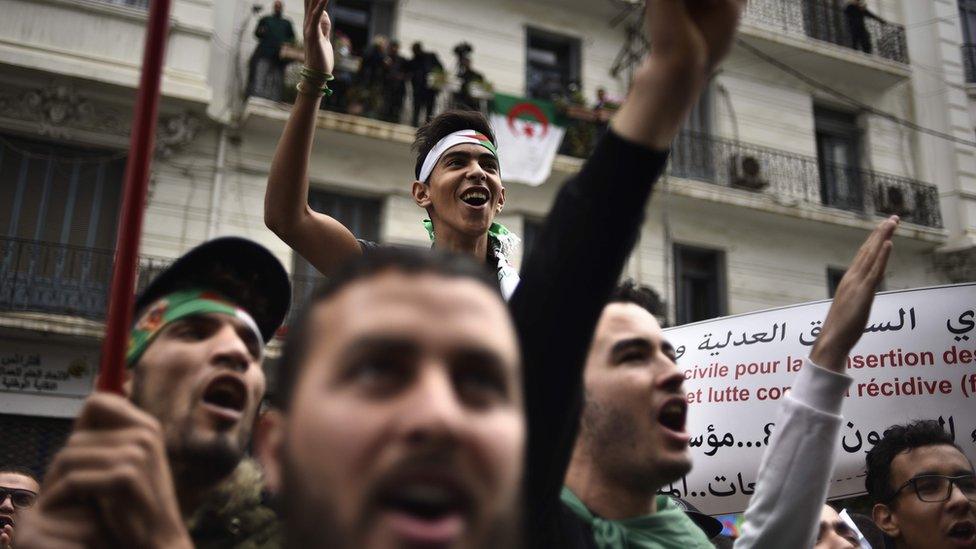
The youth are the main driving force behind these demonstrations, young men and women who have known no president other than Abdelaziz Bouteflika.
But they are not satisfied.
"We are tired of this regime, they have robbed us. We've had enough of that," an emotional young woman tells me.
Nearly half of the population is under 30, many of whom are unemployed and having to live in poor conditions.
But I have also seen Algerians from older generations taking part in the protests.
Everybody here wants a change. They are sending a clear message: "a new phase with new faces".
They tell me they don't trust anyone associated with the Bouteflika era.
The mood is full of enthusiasm and energy but the people here take pride in the peaceful nature of the protests.
They have been emboldened by their success in unseating the president and now believe the same can happen with his entourage.

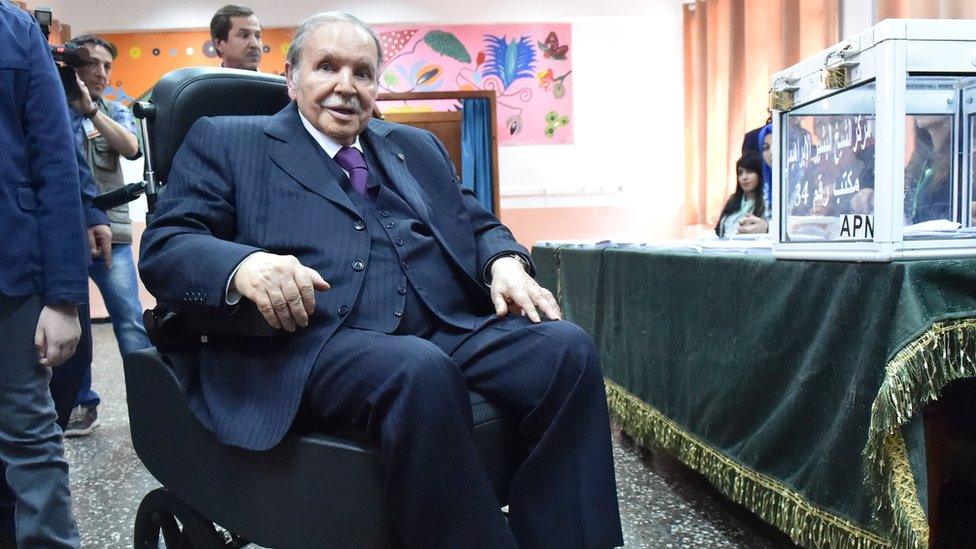
Mr Bouteflika's departure has not satisfied the protesters
How did the protests come about?
Pressure had been building since February, when the first demonstrations were sparked by Mr Bouteflika's announcement that he would be standing for a fifth term.
The octogenarian leader suffered a stroke six years ago and has rarely been in public since.
Tens of thousands protested across the country on 1 March. Mr Bouteflika's promise not to serve out a fifth term if re-elected, along with a change of prime minister, failed to quell the discontent.
Leaders of the protests also rejected Mr Bouteflika's offer this week that he would go by the end of his current term - 28 April - as not quick enough.
It seems the powerful military agreed. Its chief, Lt Gen Ahmed Gaed Salah, said on Tuesday: "There is no more room to waste time."
Mr Bouteflika resigned on Tuesday but that was not enough for protesters.
Who is former President Bouteflika?
He is a veteran of Algeria's war of independence who served as foreign minister for more than a decade before becoming president in 1999.
His primary task was to rebuild the country, and its economy - but first, he needed to end Algeria's brutal civil war sparked by the military's refusal to recognise the election victory of the Islamic Salvation Front in the early 1990s.
Despite guaranteeing stability in the oil-rich nation, his government has been accused of widespread corruption and state repression.
The man who once said he would not accept being "three-quarters a president" spent his last years in a wheelchair after a stroke in 2013, rarely appearing in public, and fuelling fierce debate over who was really in charge, the BBC's North Africa correspondent, Rana Jawad, says.
Who is officially running the country now?
A caretaker government is currently in place.
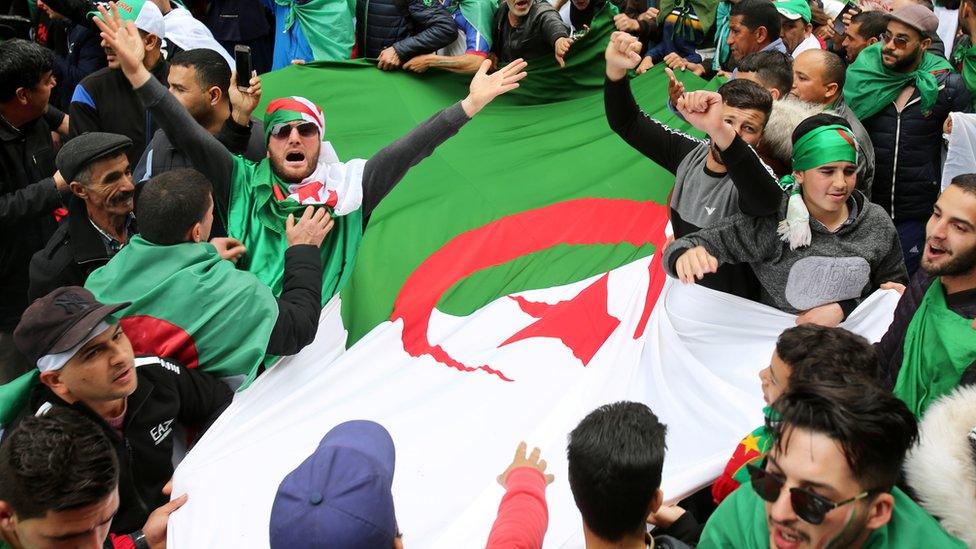
The president has resigned. What more do the protesters want?
The demonstrators are pushing for the removal of three people they dub the "3B". That is Senate Speaker Abdelakder Bensalah, head of the constitutional council Tayeb Belaiz and Prime Minister Noureddine Bedoui.
But they want much more than that - they want to dismantle the whole political system.
They say that the country is actually run by a group of businessmen, politicians and military officials who used Mr Bouteflika as a front.
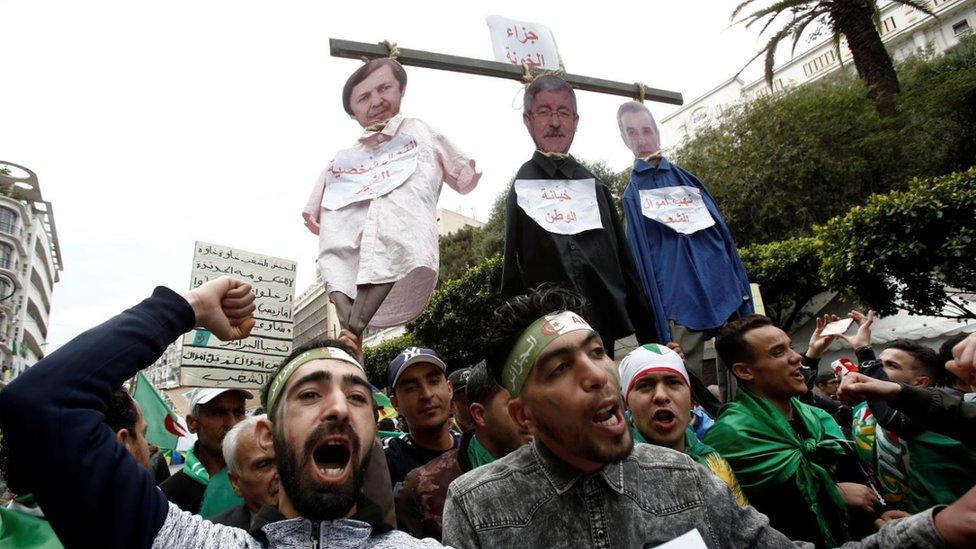
Protesters call for everyone from the old regime to go - including Mr Bouteflika's brother, Said (left puppet), former prime minister Ahmed Ouyahia (centre) and businessman Ali Haddad
They want to take the power away from this group, known as Le Pouvoir.
Specifically, one of the leading voices of the protest movement, lawyer Mustapha Bouchachi, told AFP news agency that he doesn't want the "symbols of the regime" to run the next election.
Who else has lost their position of power so far?
Earlier on Friday, the head of intelligence and close ally of Mr Bouteflika, Athmane Tartag, was reportedly sacked. He was a close ally of Mr Bouteflika.
- Published4 April 2019
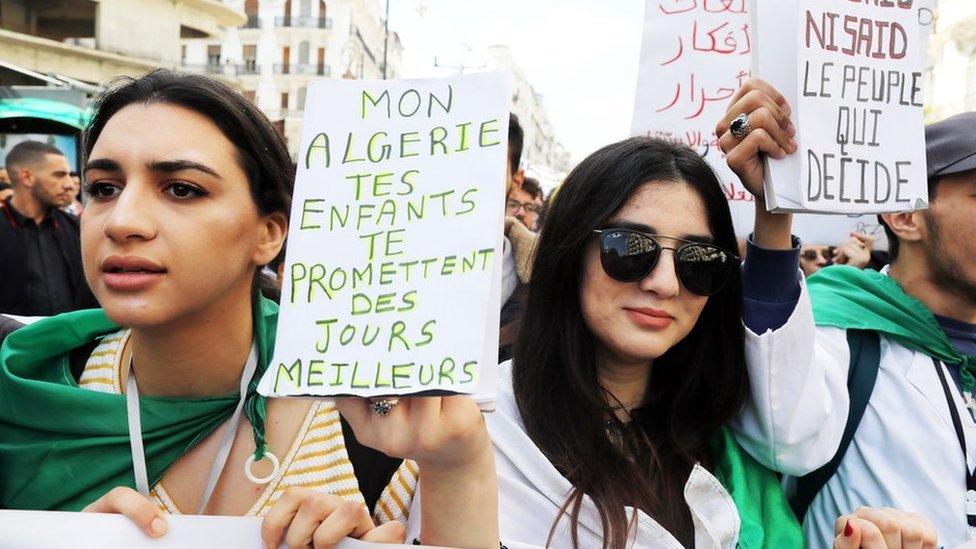
- Published3 April 2019
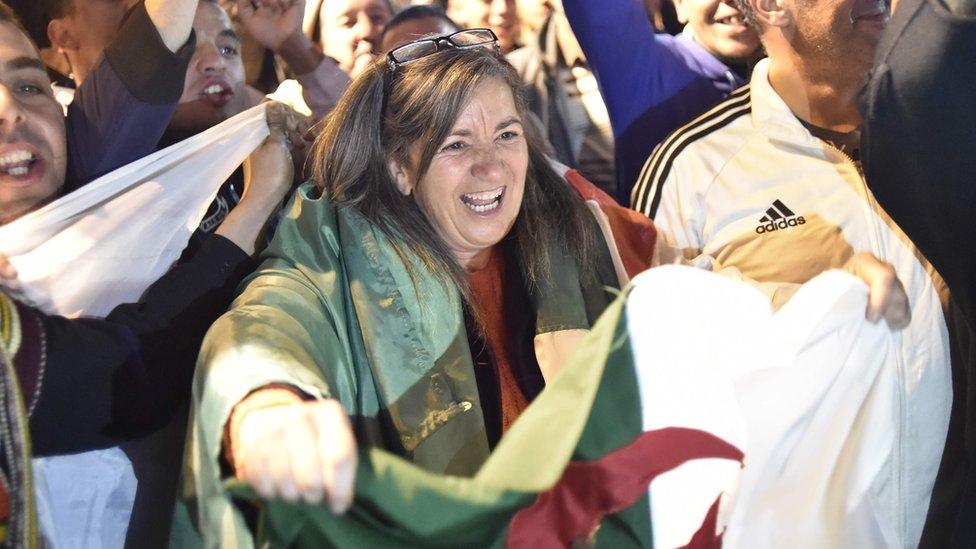
- Published31 March 2019
